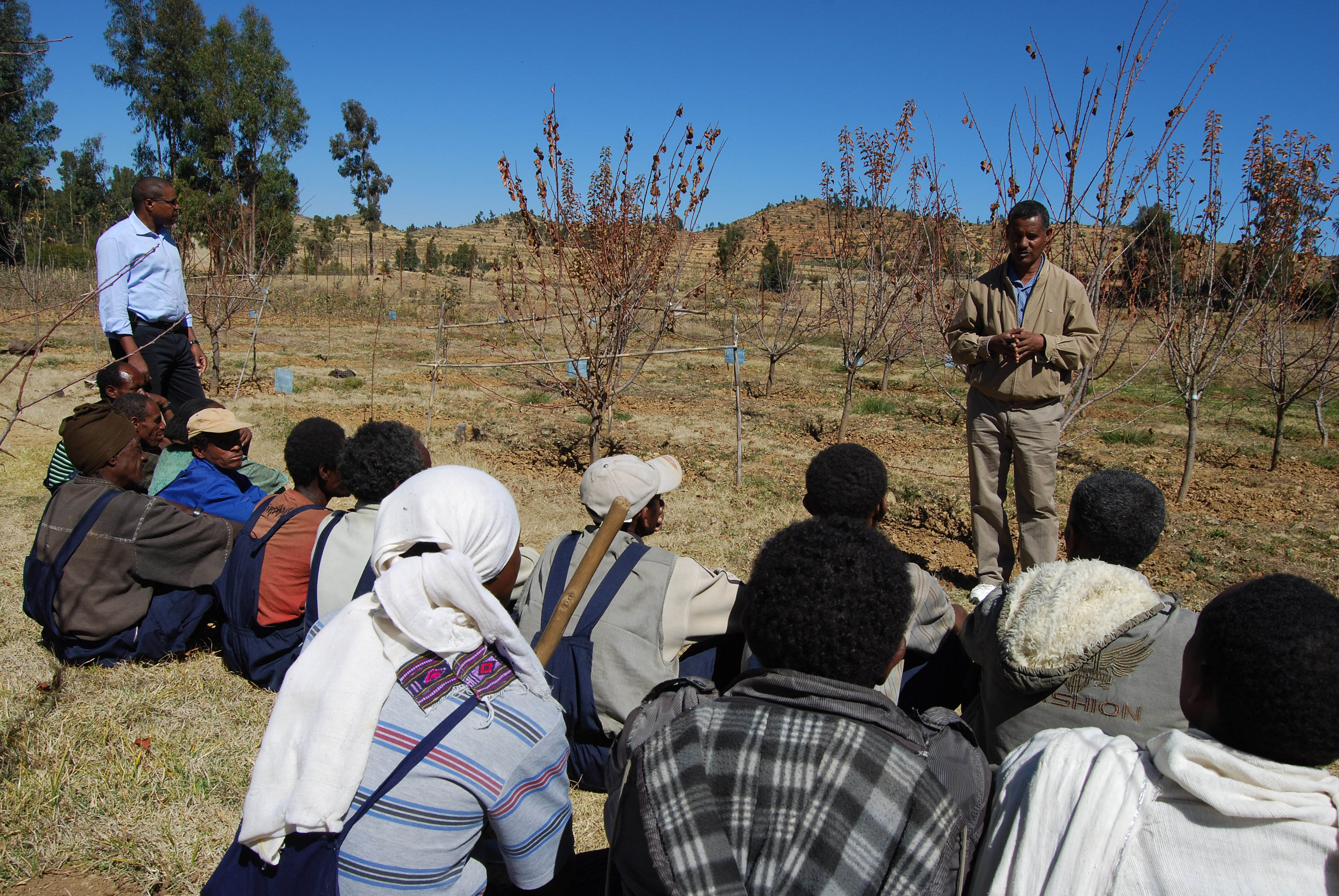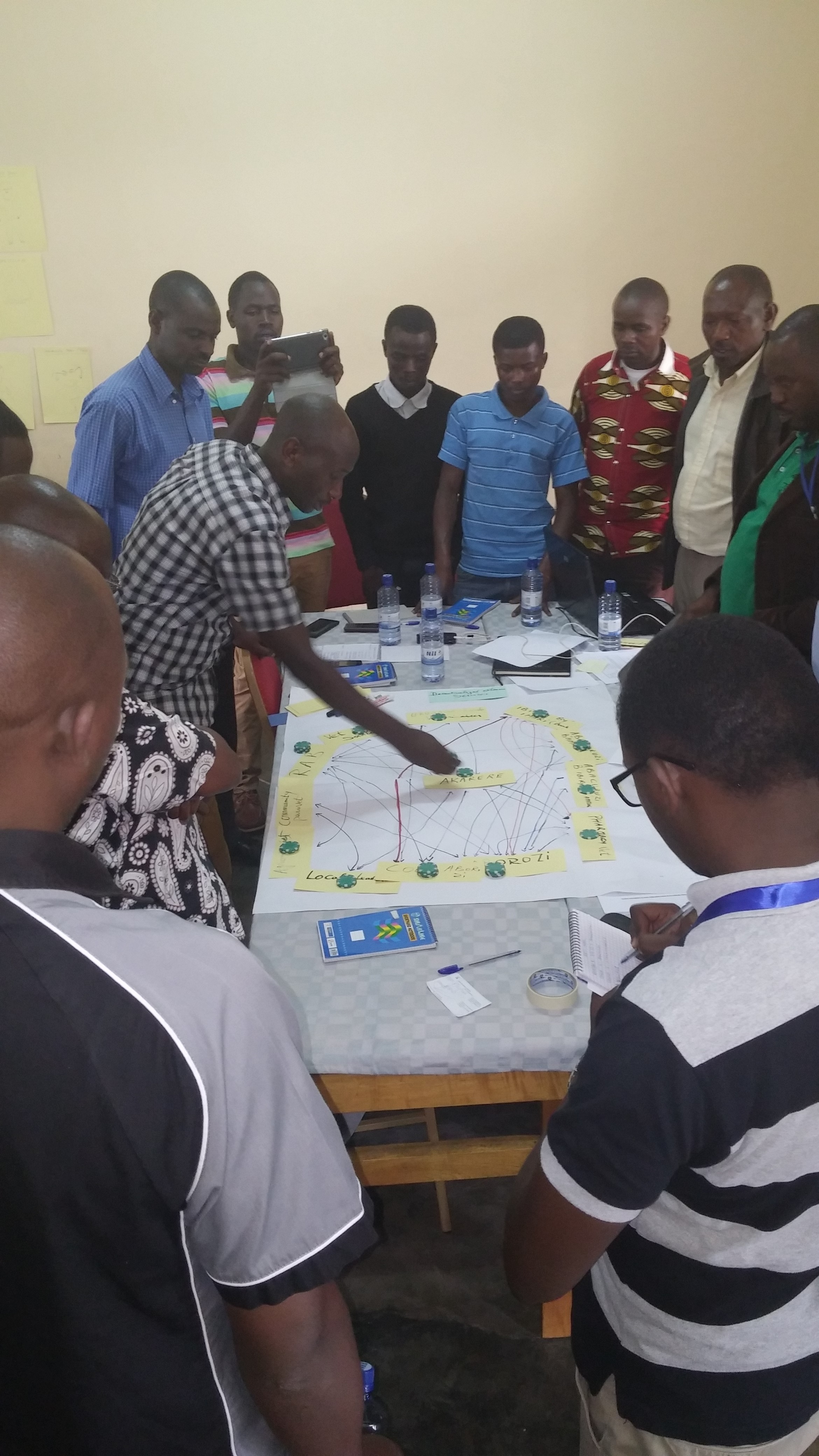Agricultural innovation is key in the fight against rural poverty and to ensure that there is food enough for everybody. CDAIS is a global partnership that is working to improve capacities for agricultural innovation systems. It aims to capitalize on renewed political support for agricultural innovation systems (AIS), bringing together global and local players in support of low income countries lacking the resources to invest in this area.
Whereas the number of people estimated to be chronically undernourished has gone down substantially over the last decade, in 2015, 795 million people still do not have enough to eat.
Agriculture is usually the most important sector driving growth in the least developed countries, but there are concerns that the rate of yield increases in crop and livestock production is faltering, the demand on natural resources is increasing, and the impacts of climate change impose additional risks and uncertainty. Urbanization is increasing rapidly, imposing additional pressures, but this also provides opportunities for farmers.
Public investment in agriculture is necessary to drive sustainable growth and poverty reduction. In general however, current agricultural research and development investments are not sufficiently demand driven, are fragmented and lacking in synergy, both between their stakeholders and between each other. Poor coordination between donor-led initiatives and the short life of projects limits cross-country learning and sustaining the gains. Interventions often focus excessively on productivity, while future agricultural systems also need to be profitable, climate smart, socially inclusive and environmentally sound, in line with the new Sustainable Development Goals.
Underlying this overall problem is the dominant ‘technology transfer’ model, whereby technology generation, dissemination and adoption are separate sequential systematic steps, as opposed to an integrated and systemic approach to innovation in agriculture. The organizational model of research and development institutes, universities, their management practices, incentives, and individual staff capacities, still reflect and reproduce a vision of development based on disciplinary boundaries and the prominence of technical innovation.
International consensus is emerging around the concept of agricultural innovation systems (AIS) as an overarching framework linking to innovation, including (i) education, research, and extension on one hand, and (ii) government, private sector, farmers organizations and NGOs on the other.
Although emerging economies such as China, India and Brazil have large national agricultural research systems (NARS), most low-income countries lack the individual, organizational and institutional capacities to successfully develop and diffuse agricultural innovations. Capacity in agricultural research and innovation is therefore usually weak, and capacity development investments rarely respond to the needs, demands and opportunities of local stakeholders.
In 2009, FAO conducted an in-depth evaluation of the efforts in six African countries, and a meta-synthesis of past evaluations. It concluded that too much emphasis had been given to immediate results and outputs, and too little on sustainability, with most capacity development activities focused on individuals and the transfer of technical skills, and with insufficient emphasis on addressing the enabling environment (policies, norms, values, legislation) to ensure that the right incentives are in place for improving capacity.
In 2012, The European Initiative for Agricultural Research for Development (EIARD) conducted a review of capacity development for agricultural research for development (ARD) based on the experience of 17 European organizations working on capacity development of agricultural research for development in low income countries. This review identified the following:
- Capacity development is needed, to ensure that investments in agricultural research for development are able to generate sustainable returns.
- A stronger focus on the organizational and institutional levels is needed, to complement individual training.
- Capacity development efforts should focus on multi-stakeholder processes and open innovation partnerships, and not be restricted to individual research organizations or higher education institutes.
- Greater attention should be given to the use of participatory methods to identify capacity needs, and to facilitate the institutionalization of capacity development processes and outputs;
- Currently, the planning, monitoring, evaluation and impact assessment of capacity development initiatives is weak, and greater efforts are needed to design and adopt harmonized approaches and to generate and share relevant information.
- There are significant opportunities to enhance the benefits of capacity development for agricultural research for development, and that European organizations are well placed to help shape such initiatives.
The emergence of the Tropical Agriculture Platform (TAP), an initiative of G20 Agriculture Ministers in 2012 with a Secretariat hosted in the FAO, provides an opportunity to further promote approaches to agricultural innovation systems, and to tackle problems of weak capacity in a systematic way.
CDAIS will therefore support activities of the TAP at the global level to synthesize, and to further develop approaches and methods of capacity development for agricultural innovation systems at individual, organizational and institutional levels, including methods for needs assessment, implementation and evaluation.
CDAIS will then test and validate these methods with actions focused on specific innovation partnerships and value chains in eight selected pilot countries. This will open opportunities to improve the livelihoods and capacity to innovate of smallholder farmers and others in the selected partnerships.


